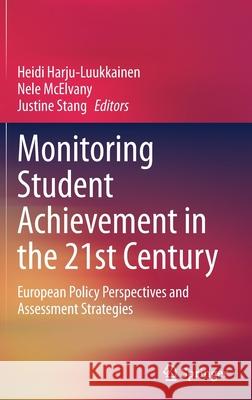Monitoring Student Achievement in the 21st Century: European Policy Perspectives and Assessment Strategies » książka
topmenu
Monitoring Student Achievement in the 21st Century: European Policy Perspectives and Assessment Strategies
ISBN-13: 9783030389680 / Angielski / Twarda / 2020 / 279 str.
Monitoring Student Achievement in the 21st Century: European Policy Perspectives and Assessment Strategies
ISBN-13: 9783030389680 / Angielski / Twarda / 2020 / 279 str.
cena 603,81
(netto: 575,06 VAT: 5%)
Najniższa cena z 30 dni: 578,30
(netto: 575,06 VAT: 5%)
Najniższa cena z 30 dni: 578,30
Termin realizacji zamówienia:
ok. 22 dni roboczych.
ok. 22 dni roboczych.
Darmowa dostawa!
Kategorie:
Kategorie BISAC:
Wydawca:
Springer
Język:
Angielski
ISBN-13:
9783030389680
Rok wydania:
2020
Wydanie:
2020
Ilość stron:
279
Waga:
0.59 kg
Wymiary:
23.39 x 15.6 x 1.75
Oprawa:
Twarda
Wolumenów:
01
Dodatkowe informacje:
Wydanie ilustrowane











